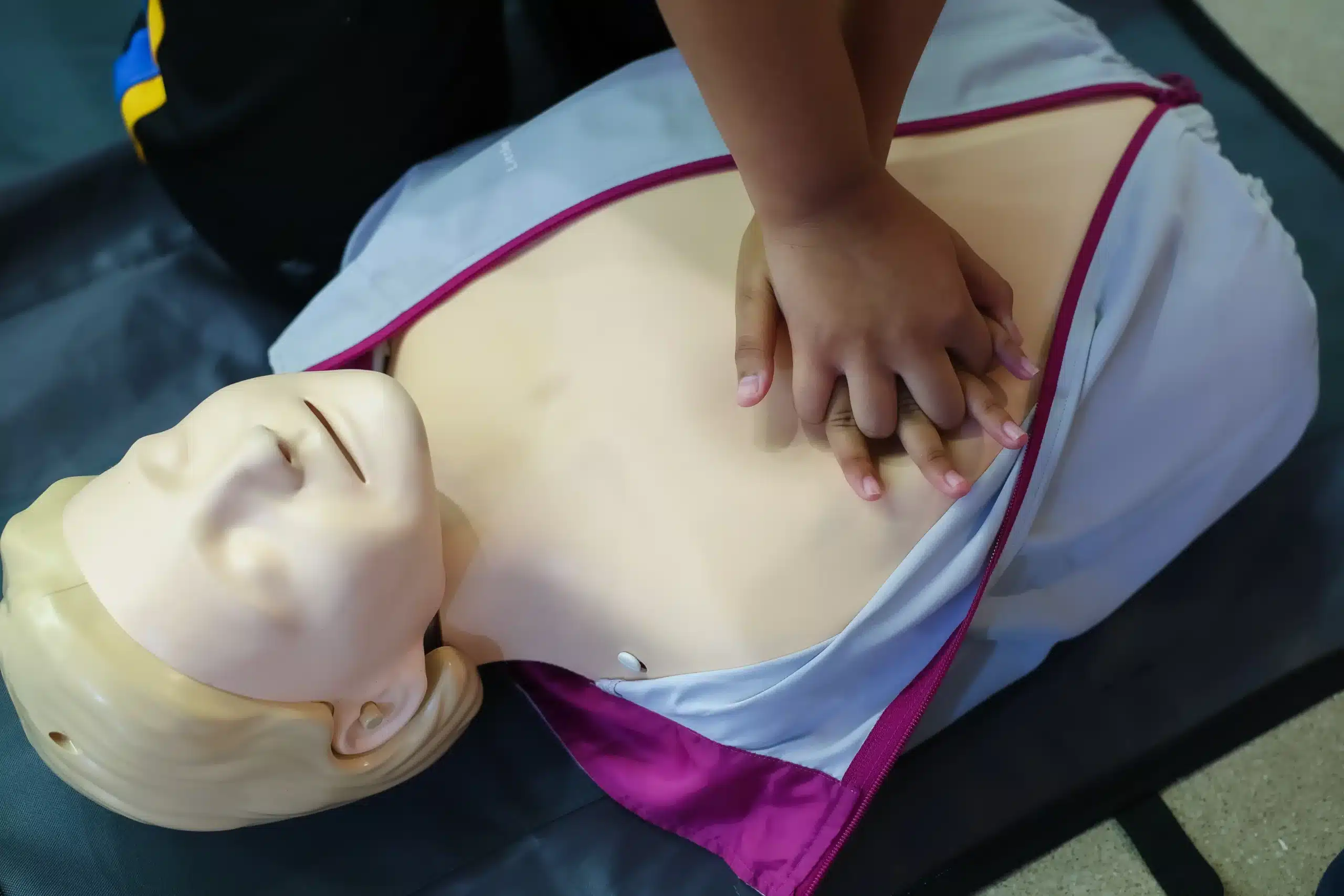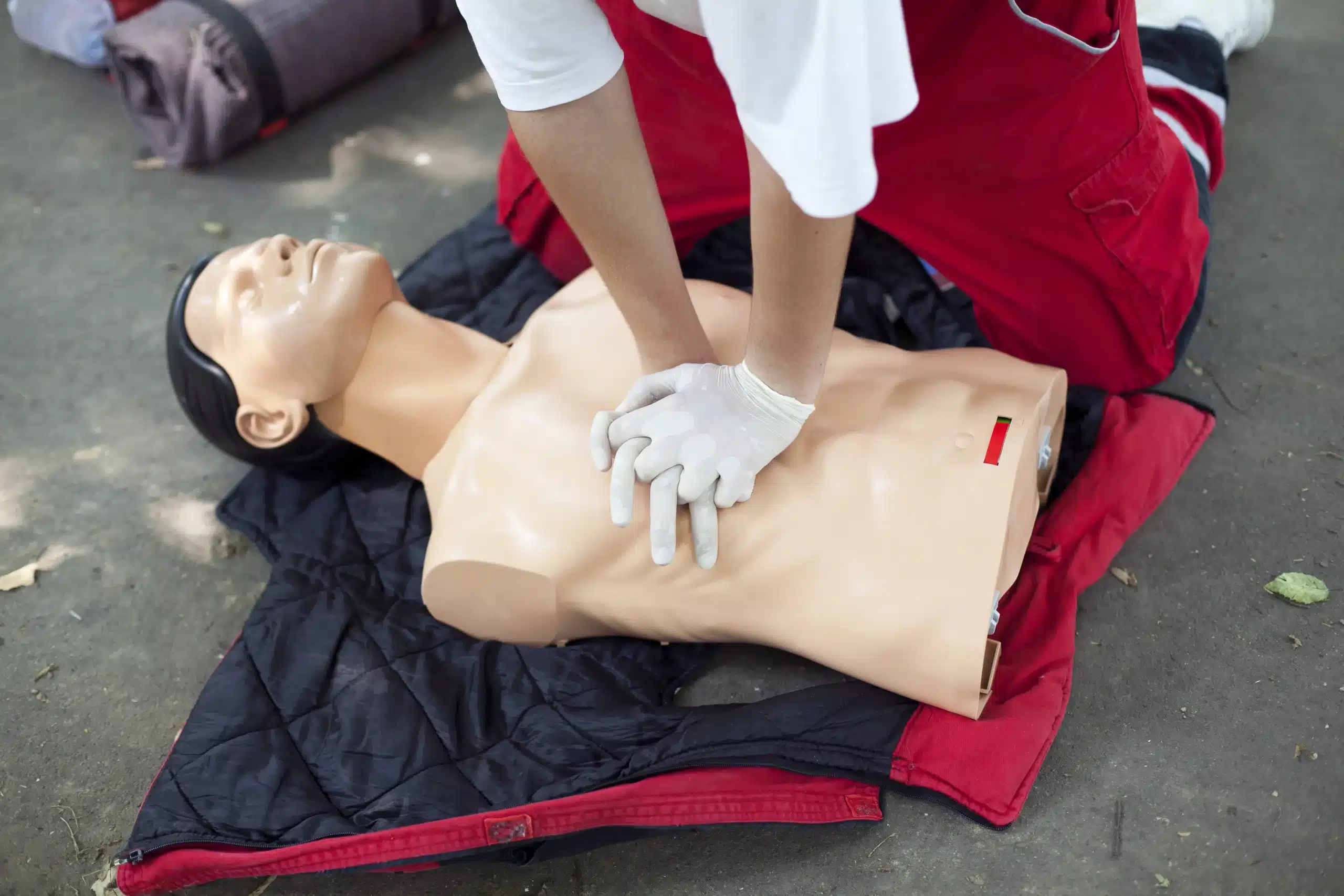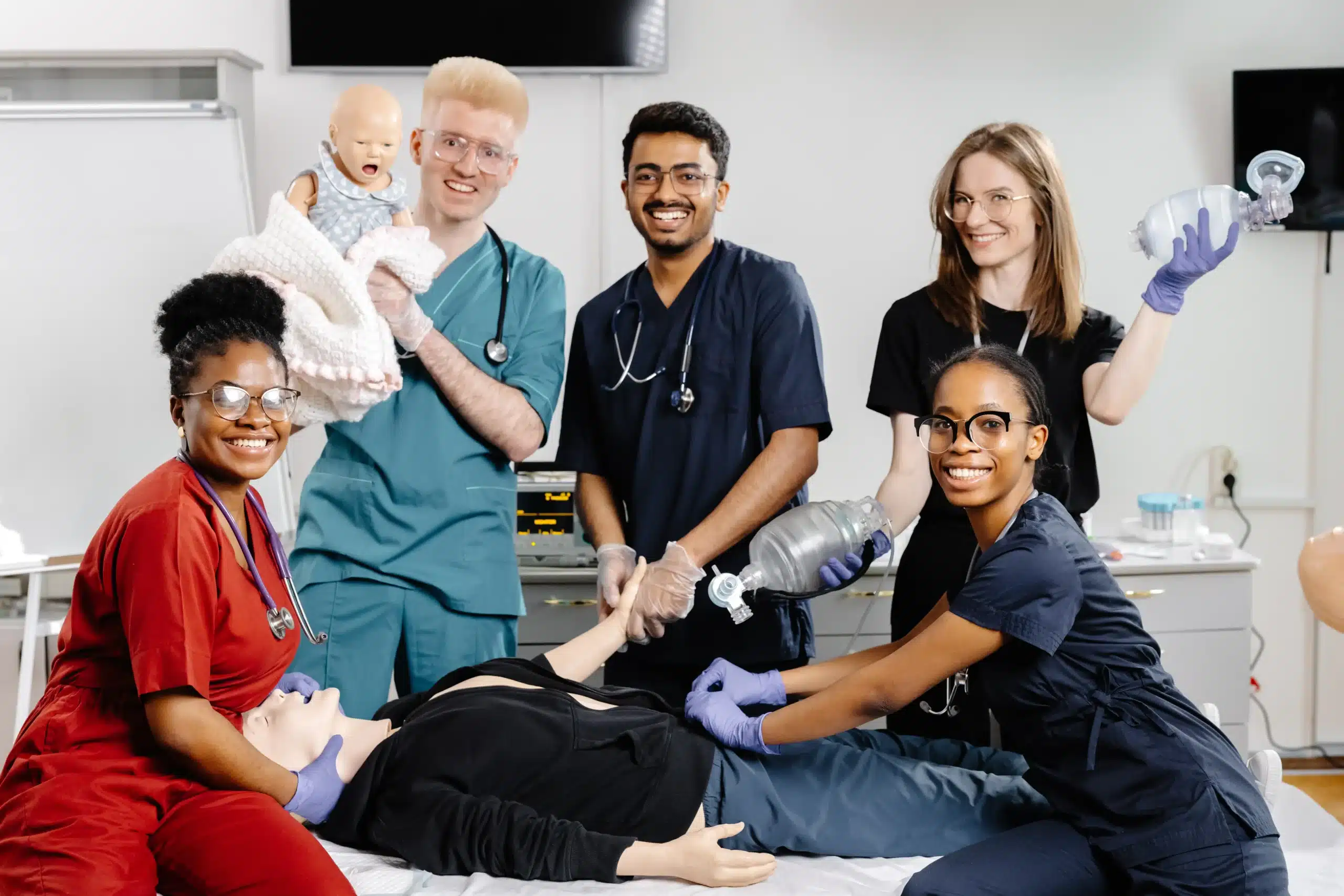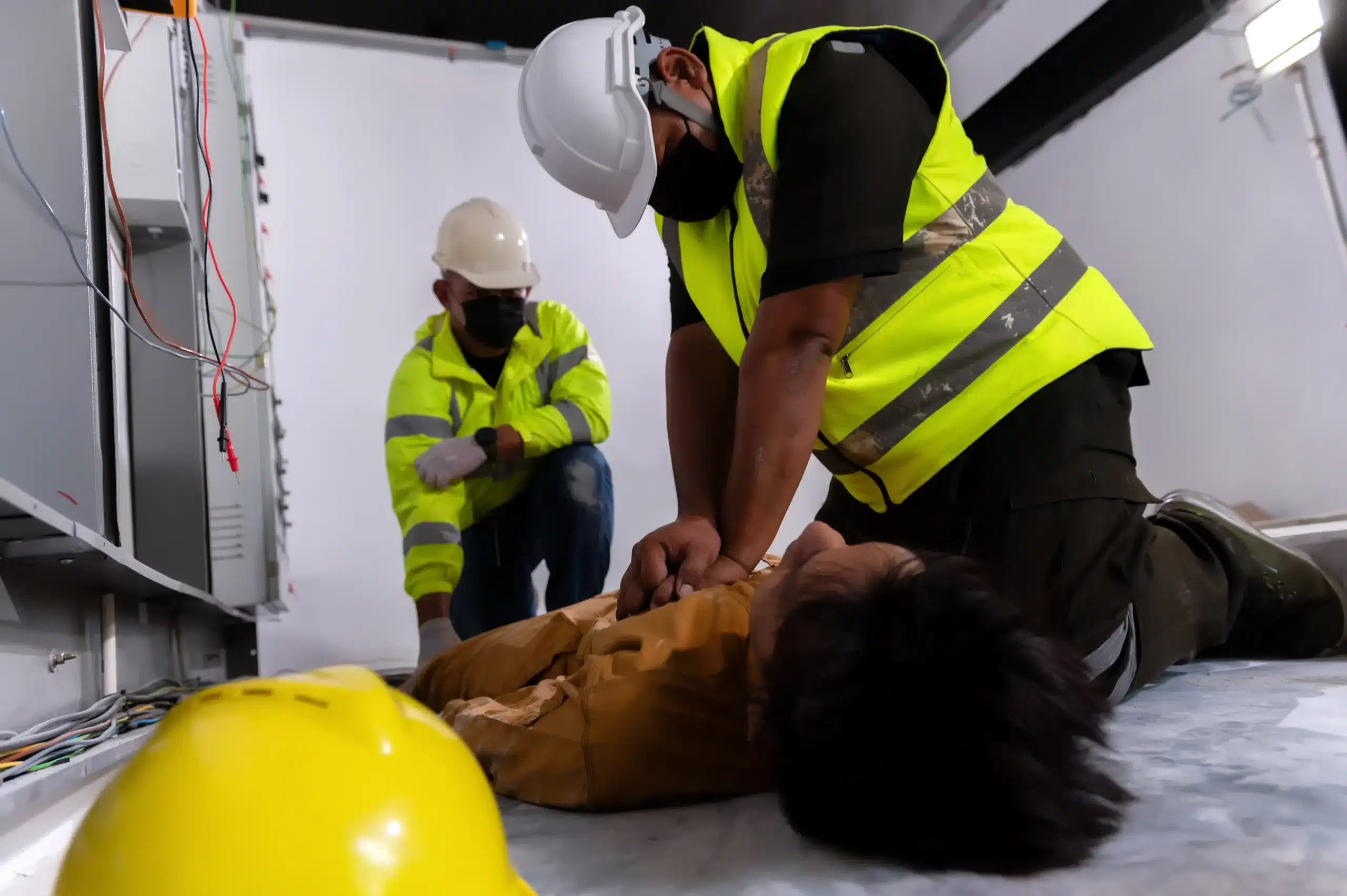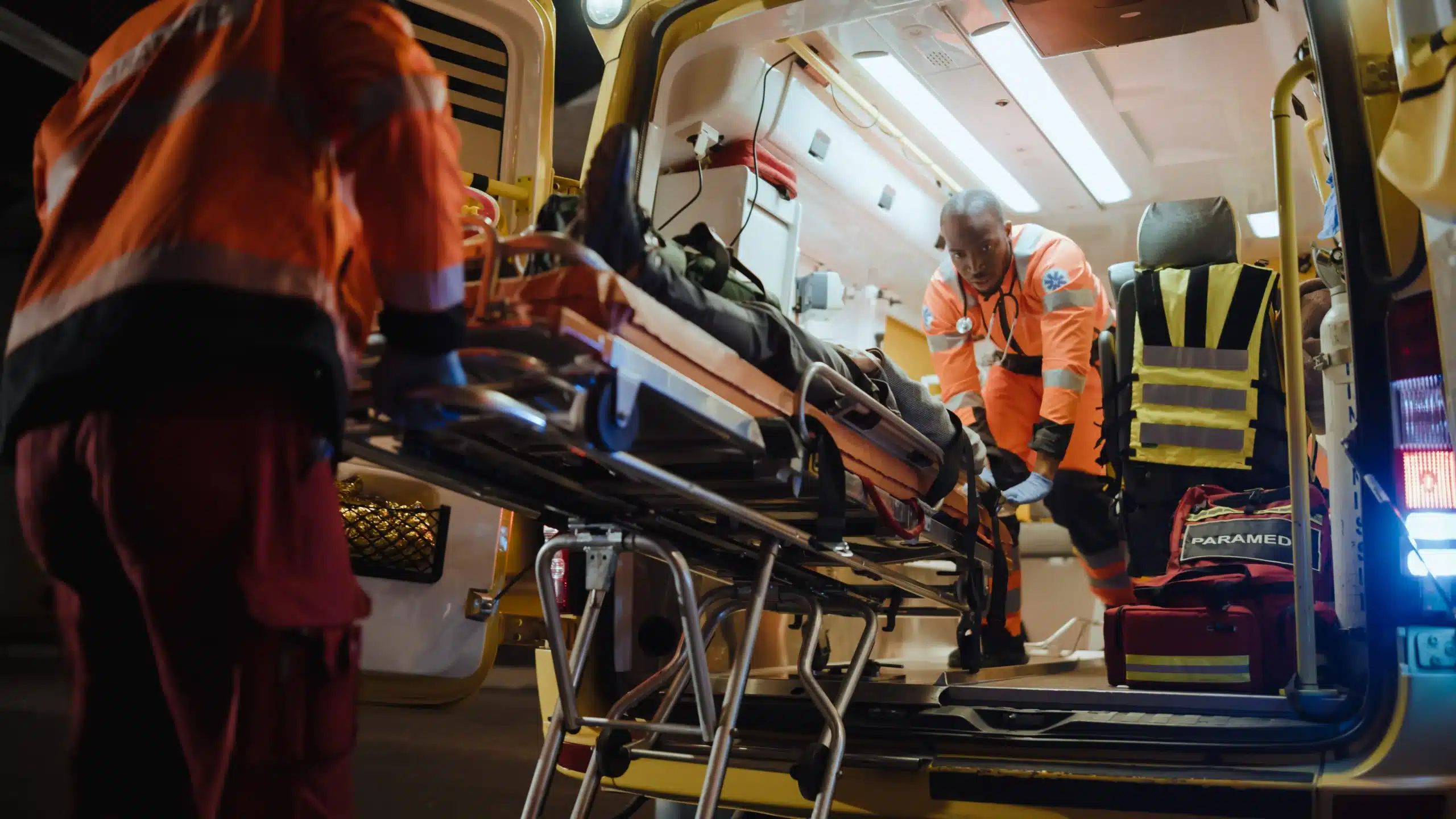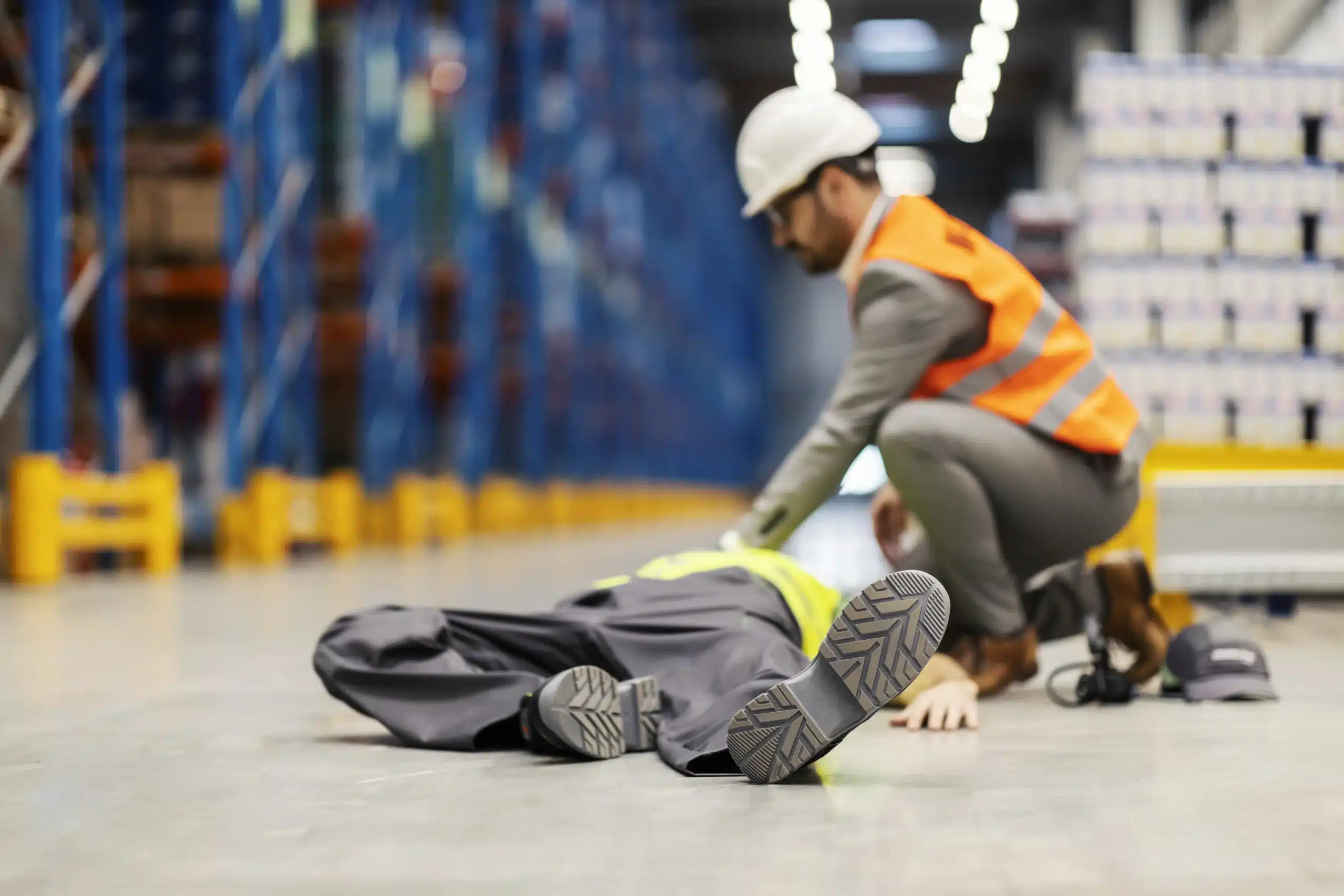As a lifeguard, you’re a vital link in the chain of survival. Your ability to administer CPR quickly and effectively can make all the difference in a water emergency. This guide will walk you through the essential information about CPR classes for lifeguards in Visalia. We’ll cover the specific certifications required, the top training providers in the area, and what to expect in terms of cost and time commitment. We’ll also discuss the importance of recertification and staying up-to-date with the latest techniques. Whether you’re looking to get certified for the first time or renew your existing credentials, this guide will provide you with the resources you need.
Key Takeaways
- CPR is crucial for lifeguards: It equips you with lifesaving skills for various emergencies. Find reputable training like Safety Training Seminars for initial certification or recertification.
- Select the right CPR class: Consider California’s lifeguard requirements, your learning style, and schedule. Compare providers like Safety Training Seminars, American Red Cross, and ProTrainings.
- Stay current with CPR: Regular recertification ensures your skills and knowledge are up-to-date. Refresh your training and explore options like RQI classes to maintain preparedness.
What is CPR Certification for Lifeguards?
Becoming a lifeguard requires CPR certification, but the specific requirements vary by state. CPR is a cornerstone of lifeguard training, equipping you to respond to drowning emergencies and other critical situations. Both Heartsaver and Basic Life Support (BLS) courses teach CPR, covering techniques for adults, children, and infants, as well as training on how to use an automated external defibrillator (AED). You can find more information about BLS certification on the Safety Training Seminars website.
The Lifeguard’s Role in CPR
Lifeguards are vital first responders in drowning incidents and other emergencies. Their ability to administer CPR immediately can significantly impact survival rates and minimize the risk of brain damage. For more insights into the importance of CPR for lifeguards, check out this informative article. Beyond direct intervention, lifeguards also play a crucial role in educating the public about water safety and the importance of CPR training, fostering a safer community for everyone.
Common CPR Training Misconceptions
One common misconception is that only medical professionals can perform CPR effectively. This simply isn’t true. High-quality CPR training programs empower anyone to learn and confidently apply these lifesaving techniques. Learn more about common CPR myths and why they shouldn’t hold you back. Some people worry about performing CPR incorrectly or causing injury, and others hesitate because of the mouth-to-mouth component. However, current CPR training emphasizes chest compressions and provides guidance to address these concerns, making it easier than ever to learn and administer CPR effectively. It doesn’t require extensive medical training, just a willingness to learn and act.
CPR Classes for Lifeguards in Visalia
Lifeguards have a critical job keeping people safe in and around water. Being ready to perform CPR is a big part of that. Here’s a look at CPR class options for lifeguards in Visalia:
American Red Cross Lifeguard Training
The American Red Cross offers comprehensive lifeguard training that includes CPR certification. These programs cover water rescue techniques, first aid, and CPR administration. Your certification is good for two years after you complete the program. Make sure to recertify before it expires so you’re always prepared to respond.
Basic Life Support (BLS)
Basic Life Support (BLS) training is essential for lifeguards. The American Heart Association offers BLS classes in Visalia that teach people how to perform CPR and handle cardiac emergencies. Many courses use a blended learning format, combining online learning with in-person skills practice. Once you finish both parts, you’ll receive a BLS Provider eCard, which is valid for two years.
Lifeguard CPR and First Aid
Besides general CPR training, lifeguards in Visalia can take specialized CPR and First Aid classes. These courses often go deeper into situations lifeguards might encounter, like water rescues and spinal injuries. Safety Training Seminars offers American Heart Association CPR, BLS, ACLS, and PALS courses in Visalia, giving lifeguards a broad range of skills to handle different emergencies.
California Lifeguard Certification Requirements
As a prospective lifeguard in California, understanding the certification requirements is key to starting your career. These requirements ensure you’re well-prepared to handle the responsibilities of keeping individuals safe in aquatic environments.
CPR for the Professional Rescuer
CPR certification is a cornerstone of lifeguard training. You’ll need to complete a CPR course specifically designed for professional rescuers, covering adult, child, and infant CPR. These courses also typically include training on how to use an Automated External Defibrillator (AED). This specialized training goes beyond basic CPR, equipping you with the skills to assess and respond to various emergency situations in a professional capacity. Check out our BLS courses in Visalia for more information on CPR training options.
First Aid and AED Training
Beyond CPR for professional rescuers, you’ll also need comprehensive training in first aid and AED use. This training provides a broader skill set for handling medical emergencies, from minor injuries to more serious situations. Proper first aid training covers essential techniques like wound care, managing bleeding, and recognizing signs of shock or other medical conditions. AED training teaches you how to safely and effectively use an AED to help someone experiencing sudden cardiac arrest.
Additional Training Requirements
Once you’ve earned your lifeguard certification in California, remember that it’s valid for two years. To maintain your credentials and continue working as a lifeguard, you’ll need to recertify. The American Red Cross recommends completing the recertification process before, or within 30 days of, your certification’s expiration date. This ensures your skills and knowledge remain current, allowing you to provide the highest level of safety and care. Staying up-to-date on the latest protocols and techniques is crucial for effective lifeguarding. Consider exploring our RQI classes to maintain your proficiency and refresh your skills.
Top CPR Training Providers in Visalia
Finding the right CPR training provider is an important step towards becoming a certified lifeguard. Here are a few reputable options in the Visalia area:
Safety Training Seminars
Safety Training Seminars offers a range of American Heart Association courses, including CPR, BLS, ACLS, and PALS, right here in Visalia. They understand busy schedules and offer flexible options, even coming to your location for group training. This makes getting certified convenient and accessible. For more information, check their website for details about their BLS courses in Visalia. They also offer a low price guarantee, ensuring you get the best value for your training. Contact them to learn more about their class schedules and availability.
American Red Cross
The American Red Cross is a well-known provider of lifeguard training in California. Their certification is valid for two years, and they offer recertification courses to help you maintain your credentials. Staying current with your certification is key to being prepared for emergencies.
ProTrainings
ProTrainings offers various CPR, First Aid, and AED training programs. They emphasize the importance of these certifications for lifeguards, as these skills are essential for responding effectively to emergencies on the job. While specific requirements may vary, a solid foundation in these areas is crucial for any aspiring lifeguard. Learn more about their CPR certification for lifeguards.
Southern’s CPR & First Aid Training
Southern’s CPR & First Aid Training provides comprehensive training in Visalia, covering everything from basic CPR to more advanced certifications like BLS. They also offer training in Bloodborne Pathogens and Fire Extinguisher usage, giving you a well-rounded skill set to handle various emergency situations. These extra certifications can make you a more valuable asset in any lifeguarding role. Check out their FAQ page for more details on their course offerings.
CPR Class Costs and Duration
Understanding CPR class costs and time commitments is essential when choosing the right course. Let’s break down the typical pricing structures, time involved, and different learning formats available in Visalia.
Pricing Structures
CPR class prices in Visalia vary depending on the certification level and the organization offering the training. Basic CPR and AED certification typically ranges from $25 to $40. More advanced certifications, such as BLS for Healthcare Providers, generally cost a bit more, usually between $40 and $60. Safety Training Seminars offers a low price guarantee, so check their website for current pricing. Comparing prices with other providers like the American Red Cross can also help you find the best value.
Time Commitments
The time commitment for CPR classes also varies based on the course type. A basic CPR and AED course typically takes around two to four hours. BLS for Healthcare Providers usually requires a bit more time, often around four to six hours. Safety Training Seminars offers daily classes to accommodate various schedules. Consider whether a shorter, focused course or a comprehensive option better suits your needs and availability.
In-Person vs. Blended Learning
Choosing between in-person and blended learning depends on your learning style and preferences. In-person CPR classes provide hands-on training with instructors and allow for immediate feedback. Blended learning combines online coursework with an in-person skills session, offering more flexibility. RQI classes often utilize this blended approach. Consider which format best suits your learning style and schedule. Contact Safety Training Seminars directly if you have questions about which format is right for you.
Get Your Lifeguard CPR Certification
So, you’re ready to take the plunge and become a certified lifeguard? Excellent! A crucial part of this process is obtaining your CPR certification. This section breaks down the steps involved.
Steps to Certification
First, find a reputable training provider. Safety Training Seminars, conveniently located in Visalia, offers a range of American Heart Association courses that often meet the requirements for lifeguard certification. Generally, lifeguard training programs incorporate CPR certification as part of their curriculum, but double check with your specific program to confirm. Look for courses that cover essential skills like adult, child, and infant CPR, and how to use an Automated External Defibrillator (AED). These skills are fundamental to lifeguarding.
Hands-on Skills Assessment
Be prepared for a hands-on skills assessment. This practical test requires you to demonstrate your CPR proficiency, along with AED use and First Aid. It’s how certifying organizations, like the American Lifeguard Association, ensure lifeguards can effectively respond to real-world emergencies. Practice and preparation are key to acing this part of the certification process.
Written Exam Components
Beyond the practical skills, you’ll also encounter a written exam. This exam tests your knowledge of CPR techniques and emergency response protocols. For example, some states mandate specific skills like airway clearing and one and two-rescuer CPR for different age groups. Familiarize yourself with these components to confidently prepare for your certification exam. Understanding the “why” behind the techniques is just as important as performing them correctly.
Renew Your CPR Certification
As a certified lifeguard, staying current with your CPR skills is essential. Recertification keeps your qualifications up-to-date and reinforces your ability to respond effectively in emergencies. Let’s explore the renewal process and its importance.
Renewal Requirements and Frequency
CPR certifications for lifeguards, like those from the American Red Cross, are typically valid for two years. To maintain your certification, complete a recertification course before your current certification expires. Some organizations offer a grace period, but it’s always best to renew promptly to avoid a lapse in your qualifications. Check your certification card for the expiration date and plan accordingly. Timely renewal ensures you’re always ready to help when needed.
Stay Updated on New Techniques
Lifeguard recertification goes beyond reviewing the basics. It’s a chance to refresh essential lifeguarding skills, including CPR, AED use, and First Aid. Recertification courses often include the latest techniques and guidelines, ensuring you’re equipped with current best practices. Continuous CPR training through recertification helps you practice various emergency scenarios, keeping your skills sharp and responses effective. Regularly updating your training reinforces your commitment to providing high-quality care in emergencies.
Choose the Right CPR Class
So, you’re ready to become a certified lifeguard? Choosing the right CPR class is a crucial first step. This section will guide you through the key factors to consider when selecting a course that meets California’s requirements and fits your personal needs.
Factors to Consider
Before you sign up for a class, take some time to understand the specific CPR requirements for lifeguards in California. CPR certification is essential, and California, like many states, mandates specific skills. These often include one and two-rescuer CPR techniques for adults, children, and infants, plus training in airway clearing and AED use. Make sure the class you choose covers all of these components.
Also, think about your learning style and schedule. Do you prefer in-person, hands-on instruction, or would a blended learning format with online modules and in-person skills sessions work better? Consider the class location and schedule, too. Choose a program that easily fits into your routine. Safety Training Seminars in Visalia, for example, offers flexible scheduling options.
Compare Course Offerings
Once you’ve narrowed down your options, compare course offerings from different providers. Look at what certifications are included. Some classes may offer combined CPR/AED/First Aid certification, while others might focus solely on BLS for Healthcare Providers. Safety Training Seminars offers a range of American Heart Association courses, including BLS, ACLS, PALS, and First Aid, giving you options depending on your specific needs.
Price is another important factor. Compare the cost of different courses, but remember that the cheapest option isn’t always the best. Look for a program that offers high-quality instruction at a fair price. Check if the provider offers a low-price guarantee, like the one offered by Safety Training Seminars. Finally, don’t forget to factor in any additional costs, such as study materials or certification fees. Knowing the total cost upfront helps you budget effectively. Contact the training centers directly or visit their websites for the most up-to-date pricing information. For those located in Visalia, Tulare, and Delano, reaching out to Safety Training Seminars is a great starting point.
Benefits of Lifeguard CPR Training
As a lifeguard, you’re the first line of defense in a water emergency. Solid CPR training equips you with the skills and confidence to respond effectively, potentially saving lives. Let’s explore some key benefits:
Enhance Emergency Response Skills
CPR is a vital skill for lifeguards, enabling you to respond effectively to drowning and other emergencies where someone’s breathing or heartbeat has stopped. Immediate CPR can prevent brain damage and significantly increase survival rates. These essential skills empower you to act decisively and efficiently under pressure, providing immediate care and buying precious time until professional medical help arrives.
Build Confidence in Crises
Quality CPR training programs give you the knowledge and practice to perform CPR safely and effectively. Addressing common CPR myths and focusing on actionable steps builds your skill set and your confidence. This confidence is crucial for acting swiftly in real emergencies. When seconds count, proper training empowers you to take charge and administer life-saving care without hesitation.
Contribute to Community Safety
Lifeguards play a crucial role in educating the public about water safety and CPR. By encouraging community-wide CPR training, lifeguards contribute to a safer environment. You can become a valuable resource, sharing your knowledge and promoting a culture of preparedness. This proactive approach empowers others to respond effectively in emergencies, creating a ripple effect of safety and well-being. Your role extends beyond the immediate rescue, fostering a more resilient and prepared community.
Related Articles
- Find CPR Courses Near Me: Your Ultimate Guide – Visalia CPR Classes
- CPR Renewal in Visalia: Your Complete Guide – Visalia CPR Classes
- CPR Training in Visalia: Your Complete Guide – Visalia CPR Classes
- CPR Classes in Visalia: Find the Right One For You – Visalia CPR Classes
- BLS Certification in Walnut Creek: Your Guide – Visalia CPR Classes
Frequently Asked Questions
What type of CPR certification do lifeguards need? Lifeguards typically need CPR certification specifically designed for professional rescuers. This usually includes adult, child, and infant CPR, along with AED training. Check with your state’s requirements, as they can vary. Often, lifeguard training programs incorporate the necessary CPR certification, but it’s always best to confirm.
Where can I find CPR classes in Visalia? Several organizations offer CPR classes in Visalia. Safety Training Seminars provides various American Heart Association courses, including BLS, which often meets lifeguard requirements. The American Red Cross is another reputable option for CPR and lifeguard training. You can also explore online resources like ProTrainings for additional training options. When choosing, consider factors like cost, schedule, and the specific certifications offered.
How much do CPR classes cost? CPR class costs vary depending on the level of certification and the training provider. Basic CPR and AED courses usually range from $25 to $40, while more advanced certifications like BLS for Healthcare Providers might cost between $40 and $60. Look for providers that offer a low-price guarantee to ensure you’re getting a good value. It’s always a good idea to compare pricing from different providers before making a decision.
How long does it take to get CPR certified? The time commitment for CPR certification depends on the course type. Basic CPR and AED courses can often be completed in a few hours, while more comprehensive certifications like BLS might require four to six hours of training. Many providers offer flexible scheduling, including blended learning options that combine online coursework with in-person skills sessions.
How often do I need to renew my CPR certification? CPR certifications for lifeguards are typically valid for two years. It’s essential to renew your certification before it expires to maintain your qualifications. Recertification courses not only refresh your skills but also update you on the latest techniques and guidelines. Check with your certifying organization for specific renewal requirements and recommendations.
